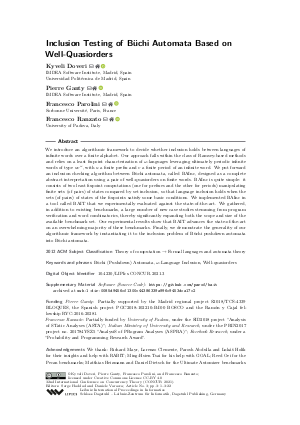LIPIcs.CONCUR.2021.3.pdf
- Filesize: 1.01 MB
- 22 pages

 Creative Commons Attribution 4.0 International license
Creative Commons Attribution 4.0 International license




Feedback for Dagstuhl Publishing